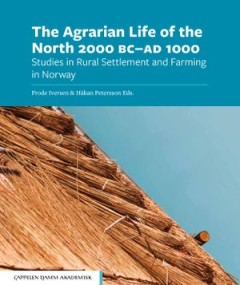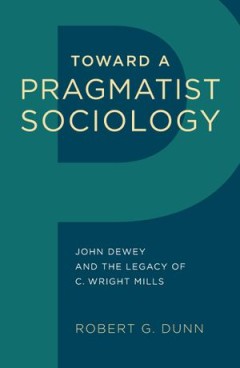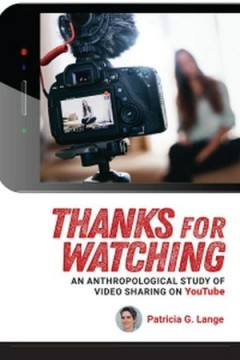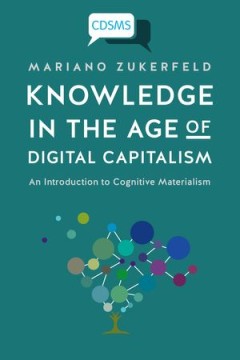Filter by

The Agrarian Life of the North 2000 BC AD 1000
The 14 articles presented in this publication represent some of the latest and most relevant research on rural settlement and farming from the Late Neolithic through the Early Medieval Period in Norway. It deals with the impact of climate change, plague and the AD 536â7 volcanic event and some of the earliest farms north of the Arctic Circle. It provides new perspectives and archaeological…
- Edition
- -
- ISBN/ISSN
- 9788283140996
- Collation
- -
- Series Title
- -
- Call Number
- 930.1 DAH a

From Dust to Digital : Ten Years of the Endangered Archives Programme
Much of world’s documentary heritage rests in vulnerable, little-known and often inaccessible archives. Many of these archives preserve information that may cast new light on historical phenomena and lead to their reinterpretation. But such rich collections are often at risk of being lost before the history they capture is recorded. This volume celebrates the tenth anniversary of the Endanger…
- Edition
- -
- ISBN/ISSN
- 9781783740642
- Collation
- -
- Series Title
- -
- Call Number
- -

Free-Market Socialists : European Émigrés Who Made Capitalist Culture in Am…
The Hungarian artist-designer László Moholy-Nagy, the Austrian sociologist Paul Lazarsfeld, and his fellow Viennese Victor Gruen—an architect and urban planner—made careers in different fields. Yet they shared common socialist politics, Jewish backgrounds, and experience as refugees from the Nazis. This book tells the story of their intellectual migration from Central Europe to the United…
- Edition
- -
- ISBN/ISSN
- 9789633864487
- Collation
- -
- Series Title
- -
- Call Number
- -

Feminist Media : Participatory Spaces, Networks and Cultural Citizenship
While feminists have long recognised the importance of self-managed, alternative media to transport their messages, to challenge the status quo, and to spin novel social processes, this topic has been an under-researched area. Hence, this book explores the processes of women's and feminist media production in the context of participatory spaces, technology, and cultural citizenship. The collect…
- Edition
- -
- ISBN/ISSN
- 9783837621570
- Collation
- -
- Series Title
- -
- Call Number
- -

The Hirschfeld Archives: Violence, Death, and Modern Queer Culture
This work examines how death, suicide and violence shaped modern queer culture, arguing that negative experiences, as much as affirmative subculture formation, influenced the emergence of a collective sense of same-sex identity. Bauer looks for this history of violence in the work and reception of the influential sexologist Magnus Hirschfeld (1868-1935), and through Hirschfeld's work examines t…
- Edition
- -
- ISBN/ISSN
- 9781439914328
- Collation
- -
- Series Title
- -
- Call Number
- 302.5 BAU h

Toward a Pragmatist Sociology: John Dewey and the Legacy of C. Wright Mills
In Toward a Pragmatist Sociology, Robert Dunn explores the relationship between the ideas and principles of philosopher and educator John Dewey and sociologist C. Wright Mills to provide a philosophical and theoretical foundation for the development of a critical and public sociology. Dunn recovers an intellectual and conceptual framework for transforming sociology into a more substantive, comp…
- Edition
- -
- ISBN/ISSN
- 9781439914595
- Collation
- -
- Series Title
- -
- Call Number
- 300 DUN t

Thanks for Watching: An Anthropological Study of Video Sharing on YouTube
YouTube hosts one billion visitors monthly and sees more than 400 hours of video uploaded every minute. In “Thanks for Watching,” Patricia Lange offers an anthropological perspective on this heavily mediated social environment, demonstrating how core concepts from anthropology—participant-observation, reciprocity, and community—apply to sociality on YouTube and how to reconceptualize an…
- Edition
- -
- ISBN/ISSN
- 9781607329473
- Collation
- -
- Series Title
- -
- Call Number
- 301 LAN t

Somalis in the Twin Cities and Columbus: Immigrant Incorporation in New Desti…
Somalis in the Twin Cities and Columbus seeks to understand the integration outcomes of refugees in the Midwest at local and state levels to show how communities struggle with political, social, and economic incorporation. While many immigration titles examine the Latino community, this book focuses on the black Muslim Somalis, providing an important understanding of the lives of this understud…
- Edition
- -
- ISBN/ISSN
- 9781439914410
- Collation
- -
- Series Title
- -
- Call Number
- 303.48 CHA s

Knowledge in The Age of Digital Capitalism An introduction To Cognitive Mate…
Knowledge in the Age of Digital Capitalism proposes a new critical theory concerning the functioning of capitalism and how we consider knowledge and information. This ambitious book systematically and lucidly introduces contemporary phenomena into the framework of cognitive materialism to address some of the great themes of the social sciences: knowledge, exploitation and social class in an acc…
- Edition
- -
- ISBN/ISSN
- 9781911534242
- Collation
- -
- Series Title
- -
- Call Number
- -

Making the White Man's West: Whiteness and the Creation of the American West
In the early nineteenth century, critics like Zebulon Pike and Washington Irving viewed the West as a "dumping ground" for free blacks and Native Americans, a place where they could be segregated from the white communities east of the Mississippi River. But as immigrant populations and industrialization took hold in the East, white Americans began to view the West as a "refuge for real whites."…
- Edition
- -
- ISBN/ISSN
- 9781607323952
- Collation
- -
- Series Title
- -
- Call Number
- 909 PIE m
 Computer Science, Information & General Works
Computer Science, Information & General Works  Philosophy & Psychology
Philosophy & Psychology  Religion
Religion  Social Sciences
Social Sciences  Language
Language  Pure Science
Pure Science  Applied Sciences
Applied Sciences  Art & Recreation
Art & Recreation  Literature
Literature  History & Geography
History & Geography